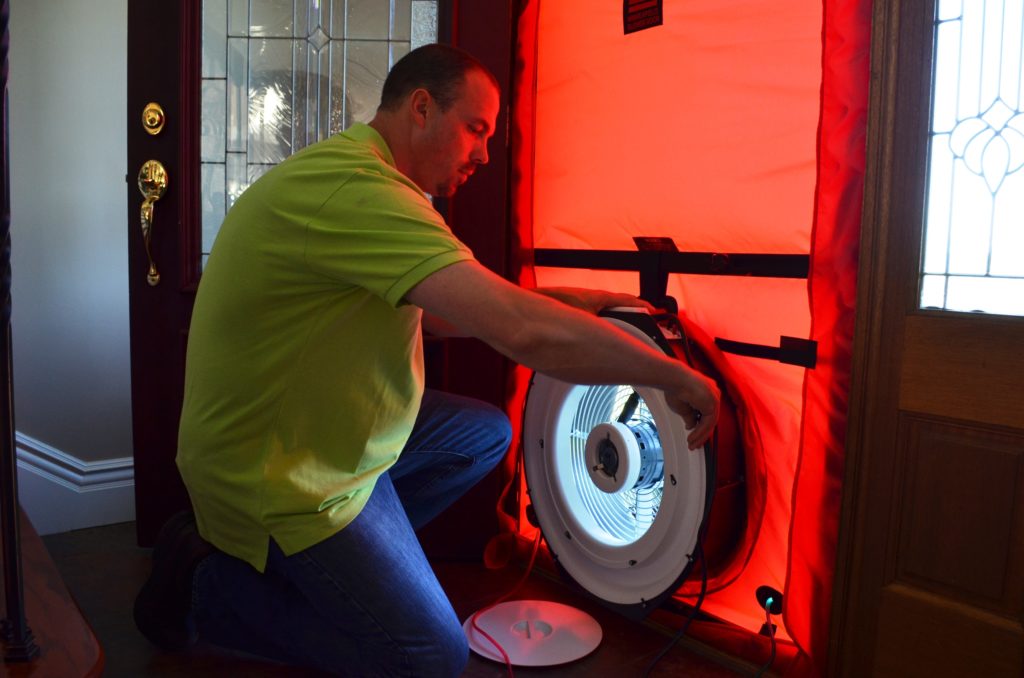
A real estate developer and home builder, Tina Hatfield has an energy-efficiency ally in her Morehead, Kentucky, business: the local electric cooperative.
Hatfield steers residents who struggle with high energy bills to How$martKY, a program at Fleming-Mason Energy Cooperative that helps members install upgrades in their homes and repay them through savings on energy bills.
“Sometimes consumers learn the hard way that they can’t afford to keep their commitments of their lease or mortgage because the electric bills are too high,” said Hatfield. “You’re getting all these improvements and you don’t have to pay for them upfront. I really think [the program] has the potential to keep renters longer and sell more homes.”
A retrofit in Hatfield’s development is just one of 300 performed for members of Fleming-Mason and five other Kentucky co-ops contracting with the Mountain Association for Community Economic Development (MACED).
“Over half of our retrofits are done for low- and moderate-income folks, and almost a quarter of our jobs are done on mobile homes,” said Chris Woolery, program coordinator at the association in Berea.
It’s part of MACED’s broader effort to use energy efficiency to stimulate the economy in eastern Kentucky and Central Appalachia. About two-thirds of the population in those two areas lives at or below the poverty level.
With that in mind, How$martKY doesn’t require credit checks and instead looks at a member’s payment history at the co-op.
“Poor credit ratings would disqualify a lot of people from conventional financing,” said Peter Hille, MACED’s president.
“In our other lending work, we’ve found frequently it’s a serious medical issue that has caused trouble with credit scores, but someone may stay current on other financial obligations. We think access to financing is an important part of making energy efficiency available to many more people.”
Since How$mart began in 2010, retrofits have totaled $2.2 million, creating “jobs for contractors that wouldn’t otherwise happen,” said Woolery, who conducts energy audits at potential participants’ homes.
“Each retrofit creates an average net cash flow of just over $132 a year, which creates an economic ripple effect of almost $40,000 per year,” for the Appalachian communities in Kentucky served by the six participating co-op partners, he said.
Joni Hazelrigg, CEO of Fleming-Mason EC in Flemingsburg, said efficiency retrofits were on her radar for years. “Members needed the upgrades but couldn’t come up with the cash upfront” to pay for a new HVAC system, insulation and other improvements.
Along came MACED in 2010, looking for co-ops to join How$martKY, then in its pilot stages. Hazelrigg was sold. “They helped us bridge the gap.”
To participate, Fleming-Mason EC secured a tariff from state regulators, which took about year. Next, MACED provided it a loan at 3 percent interest to pay for audits and contractors—co-ops can use their own or go through MACED—which members then repay from savings on bills.
About 50 members of Fleming-Mason EC have signed up, most living in substandard wooden homes or manufactured homes.
“The main problem is that people are working steadily but ask someone to come up with $4,000 to pay for a new HVAC system, and you might as well ask for a million dollars,” said Hazelrigg.
Energy efficiency can help create a more sustainable economy, said Hille.
“We see the potential to create hundreds and probably thousands of jobs in doing this kind of energy efficiency work,” said Hille. “There’s a lot of work to be done on the residential and commercial front, work that can’t be outsourced. You can’t send your house to China to be weatherized.”
Back in Morehead, Hatfield has recognized that job creation potential. She wants to train two employees to be energy contractors to transfer that skill and knowledge to her company’s new homes.
“We’d be able to provide the best product for purchase,” said Hatfield. “Helping each other while helping the environment makes energy efficiency a win for everyone.”
Victoria A. Rocha is a staff writer for NRECA.